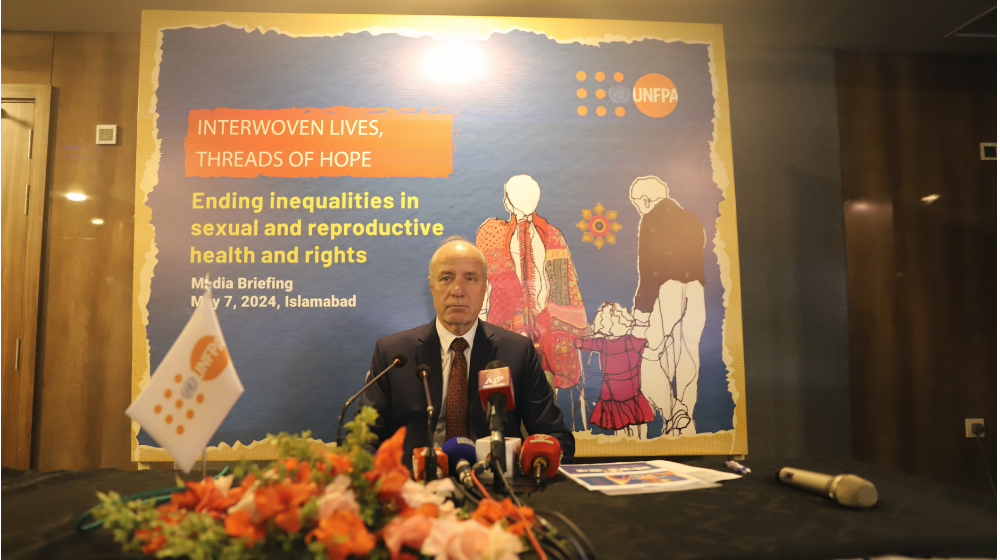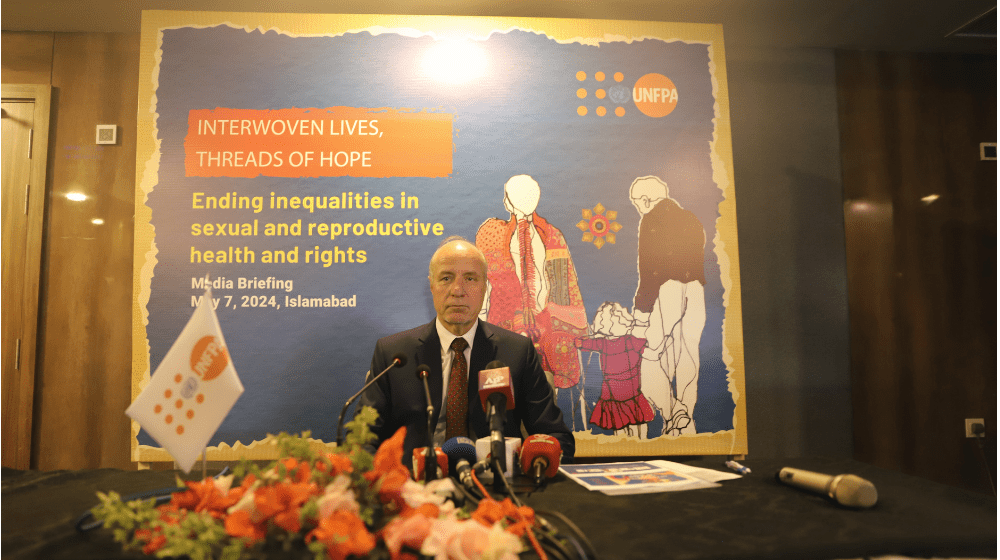Islamabad, May 7, 2024 – While the world has made great strides in sexual and reproductive health and rights over the last thirty years, the number of women who cannot benefit from this is still in the millions.
UNFPA launched the annual report on the State of the World Population 2024 under the theme “Interwoven Lives, Threads of Hope: Ending Inequalities in Sexual and Reproductive Health and Rights”. It highlights how the way forward is only through an inclusive future. The numbers and statistics delineate how discrimination continues to block broad gains in sexual and reproductive health for women and girls in many parts of the world. The report sends a wake-up call for understanding that so many are at risk due to structural inequalities around the world with over half of all preventable maternal deaths estimated to occur in countries with humanitarian crises and conflicts – that’s nearly 500 deaths per day.

2024 marks the thirtieth anniversary of the International Conference on Population and Development (ICPD) in Cairo – a landmark moment in which 179 governments committed to placing sexual and reproductive health and rights at the core of sustainable development. But progress is in danger.
Millions of women and girls remain far behind, and progress is slowing or stalled on key measures: 800 women die every day giving birth, unchanged since 2016 and nearly one in 10 women cannot make their own decisions about contraception. In Pakistan, less than 1 in 3 women can make decisions regarding sexual and reproductive health. Women with disabilities are up to 10 times more likely to experience gender-based violence than their peers without disabilities.
‘Pakistan is a country with a predominantly young population. Every young person must be given the chance to achieve their potential. With over 50% of Pakistan's population under the age of 19, the country will miss a great opportunity and face high risks if youth are not enabled to exercise their rights in good health, education, and well-being. Women and girls are another missed opportunity for Pakistan’s economy and social fabric; this fact speaks to the findings of the SWOP report which highlighted that due to structural inequalities, most women still do not have access to healthcare facilities.' Said Dr. Luay Shabaneh, UNFPA Representative at the media launch of the report in Pakistan today.
Pockets of inequality persist
The evidence outlined in the report points to a troubling reality – access to contraceptives, safe birth services, respectful maternity care, and other essential sexual and reproductive health services is unreachable for too many women and girls. The Universal Health Coverage (UHC) remains dishearteningly low at only 21% in Pakistan. Every 50 minutes a woman dies due to pregnancy complications in Pakistan. Women in rural areas are less likely to get timely healthcare while sadly progress is slow in Pakistan. If this pace continues, Pakistan is likely to achieve zero maternal deaths after 122 years and fulfill the needs for family planning after 93 years.
The need for investment, solidarity, and tailored solutions
The report highlights the importance of tailoring programmes to the needs of communities – instead of large-scale, one-size-fits-all approaches – and empowering women and girls to craft and implement innovative solutions. It also calculates that if the world invests an additional $79 billion in low- and middle-income countries by 2030, this will avert 400 million unplanned pregnancies, save 1 million lives, and generate $660 billion in economic benefits.
For interviews or more information, please contact:
Mariyam Nawaz, communications Analyst | mnawaz@unfpa.org


